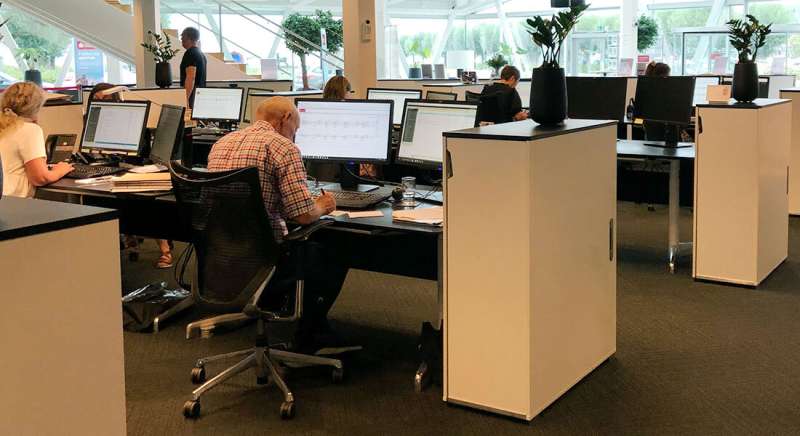This article has been reviewed according to Science X's editorial process and policies. Editors have highlighted the following attributes while ensuring the content's credibility:
fact-checked
peer-reviewed publication
trusted source
proofread
Stereotypes about senior employees can lead to premature retirements

Unproductive, inflexible, and less motivated... these are some of the most common stereotypes heard about senior employees. Even though the stereotypes are usually unfounded, they nevertheless influence how senior employees perceive themselves and their status in the workplace. And they thus become a key factor in many senior employees' retirement decisions, conclude University of Copenhagen researchers in a new study published in PLOS ONE.
"In our study, we refer to the uncertainty that senior employees feel about their status as 'the worn-out syndrome,' which is similar to the well-known imposter syndrome that is associated with a feeling of inadequacy. But there is an important difference: the senior employees we have interviewed are confident about their own skills, and their colleagues are mostly positive about their contribution," says author and Associate Professor Aske Juul Lassen from the University of Copenhagen.
"Senior employees thus seem to internalize the stereotypes that circulate in the labor market about older employees. In other words, the worn-out syndrome does not necessarily have anything to do with what colleagues think about a senior employee but rather with what the senior employee thinks the colleagues think about the senior employee. Combined with a latent fear of future decline, this uncertainty unfortunately leads to premature decisions about retirement," Aske Juul Lassen adds.
The study's findings are based on ethnographic fieldwork at small and medium-sized companies in the finance and production industries in Denmark, where Aske Juul Lassen and his colleagues interviewed 92 senior workers, managers, union representatives, and HR personnel at eight different companies.
More openness about cognitive decline
During the fieldwork, the researchers noticed a marked difference in the attitudes towards older employees and decline in the financial and production industries respectively. The fear of decline is thus more apparent in the financial industry than in the production industry, but this does not mean that the topics of decline and decreasing productivity are absent from the production industry. On the contrary:
"In the production industry, there is an openness about being worn out which is typically equated with physical decline. This type of decline has been part and parcel of the public and political conversation for a good 100 years—and has led to a plethora of new pension schemes and policies. The worn-out body is, in other words, a matter of collective and political concern, whereas the worn-out mind is portrayed as an individual problem," Ph.D. student Marie Gorm Aabo says.
She concludes, "If we want to combat the stereotypes that inform the worn-out syndrome and senior employees' untimely retirement decisions, senior employees and their colleagues and managers must find a way of discussing openly the fear and uncertainty that senior employees feel regarding their potential cognitive decline. A political discussion about cognitive decline and mental health—like the one we have had about physical decline—would be an important first step in this regard."
More information: The worn-out syndrome: Uncertainties in late working life triggering retirement decisions, PLOS ONE (2023). DOI: 10.1371/journal.pone.0282905
Journal information: PLoS ONE
Provided by University of Copenhagen




















